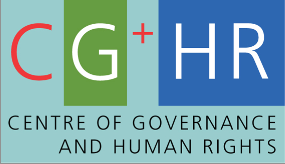Reordering South African Townships
Duration: 1 hour 11 mins 8 secs
Share this media item:
Embed this media item:
Embed this media item:
About this item

| Description: |
Wednesday 24 November 2010, Senior Common Room, POLIS
Dr Laurent Fourchard (Researcher, Sciences Po) The aim of this paper was to understand how people have tried to produce an orderly township within a context where violence is today considered to be part of township life in South Africa.It looked especially at the everyday routine of organizations that operate in Cape Town colored townships and which are locally referred as neighborhood watches, safety sector or street committees. |
|---|
| Created: | 2011-02-18 09:37 | ||
|---|---|---|---|
| Collection: | Centre of Governance and Human Rights | ||
| Publisher: | University of Cambridge | ||
| Copyright: | S. Srinivasan | ||
| Language: | eng (English) | ||
| Keywords: | South Africa; Townships; VIolence; | ||
| Credits: |
|
||
| Abstract: | South Africa is one of the most violent countries in the world and this violence is often reported as being prevalent in black and colored townships. The structure of the Colonial and Apartheid state and economy, the lack of efficient police and social control, and the emergence of gang organizations have been looked at by academics to try to understand why violence is today considered to be part of township life in South Africa. The aim of this paper was less to challenge this view than to understand how people have tried to produce an orderly township within this context. It looked especially at the everyday routine of organizations that operate in Cape Town colored townships and which are locally referred as neighborhood watches, safety sector or street committees. From within the township, there is a large consensus on the necessity to produce a social order that needs to both protect and discipline children and youth. Observation of night patrols helps to understand how this consensus is accepted and mocked, perceived by different members as necessary and/ or useless. Reasons why people get mobilized to spend time and energy without being paid to produce this specific kind of order are complicated. Some get involved to produce a moral community and defend family life others to challenge a perception that look at colored areas as crime ridden environment but there are various other political, social, economic and religious reasons. There is also no clear opposition between an indigenous people’s view on the township and a stereotyped perception of the township by state officials. In many cases, discourses and practices of neighborhood social control are the result of a not easy co-production between local members and state officials. This co-production helps questioning the literature on vigilantism, community police and more generally on the fabric of the ‘state from below’ in South Africa and beyond.
The paper was followed by a brief introduction of a new three year research programme coordinated by Laurent Fourchard on “The politics of xenophobic exclusion: mobilizations, local orders and violence” which includes among other institutions, the Centre of Governance and Human Rights at the University of Cambridge. Dr Adam Higazi, Junior Research Fellow at King's College and CGHR Associate, is a co-researcher on the project. |
|---|---|

